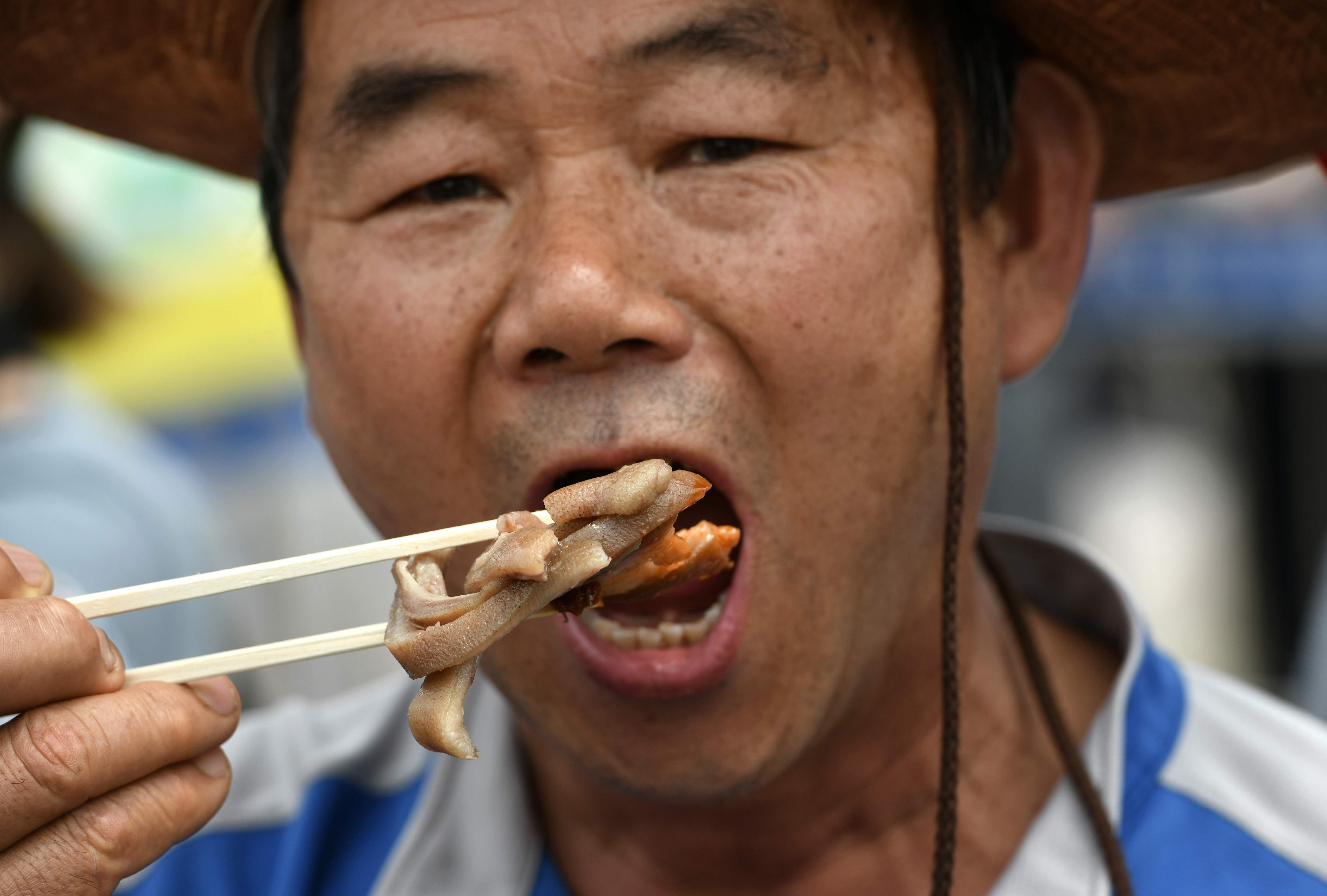South Korea to ban divisive practice of eating dog meat, ruling party says
Minister says government will ‘provide full support to farmers, butchers and other businesses facing closure’ due to new law

Your support helps us to tell the story
From reproductive rights to climate change to Big Tech, The Independent is on the ground when the story is developing. Whether it's investigating the financials of Elon Musk's pro-Trump PAC or producing our latest documentary, 'The A Word', which shines a light on the American women fighting for reproductive rights, we know how important it is to parse out the facts from the messaging.
At such a critical moment in US history, we need reporters on the ground. Your donation allows us to keep sending journalists to speak to both sides of the story.
The Independent is trusted by Americans across the entire political spectrum. And unlike many other quality news outlets, we choose not to lock Americans out of our reporting and analysis with paywalls. We believe quality journalism should be available to everyone, paid for by those who can afford it.
Your support makes all the difference.South Korea is planning to introduce a ban on dog meat, the country’s ruling political party said on Friday, putting an end to a controversy over the ancient custom that has divided generations.
Eating dog meat is neither banned nor explicitly legalised in South Korea. Consumption has dwindled in the country over the years due to criticism from animal rights groups and the younger generation's dying appetite for the meat.
"It is time to put an end to social conflicts and controversies around dog meat consumption through the enactment of a special act to end it," Yu Eui-dong, policy chief of the ruling People Power Party, said at a meeting with government officials and animal rights activists on Friday.
He said the government would introduce a bill to enact the ban before the end of this year, and that it would be expected to sail through the parliament.
The bill, if passed this winter, will allow a three-year grace period to phase out the industry, which would effectively end the consumption of the animals by 2027.
“We will provide full support to farmers, butchers and other businesses facing closure or transition due to this law,” Mr Yu said.
He added that compensation would be provided only to legally registered dog meat farmers, traders, slaughterers and restaurant owners.

Agriculture minister Chung Hwang-keun told the meeting that the government would implement a ban quickly.
Nearly one million dogs are "farmed and killed for human consumption" in a year, according to Humane Society International.
"With so many dogs needlessly suffering for a meat that hardly anyone eats, the government’s bill delivers a bold plan that must now urgently be passed by the Assembly so that a legislative ban can be agreed as soon as possible to help South Korea close this miserable chapter in our history and embrace a dog-friendly future," JungAh Chae, executive director of Humane Society International, said in a statement following the meeting.
Anti-dog meat bills have failed in the past because of protests by those involved in the industry, and worries about the livelihoods of farmers and restaurant owners.
Eating dog meat has been an age-old practice on the Korean peninsula and was traditionally seen as a way to beat the summer heat during the Bok Nal season between July and August. While the younger generation has largely rejected the practice, it still holds importance among the older generation and is served in restaurants.
A poll conducted in 2020 found that 84 per cent of South Koreans have never consumed dog meat and 59 per cent of citizens support banning consumption.
South Korean president Yoon Suk-Yeol and first lady Kim Keon Hee are known as animal lovers and have adopted stray dogs. The first lady has been a vocal critic of dog meat consumption.
There are about 1,150 dog breeding farms, 34 slaughter houses, 219 distribution companies, and some 1,600 restaurants serving dog, according to government data.
Join our commenting forum
Join thought-provoking conversations, follow other Independent readers and see their replies
Comments